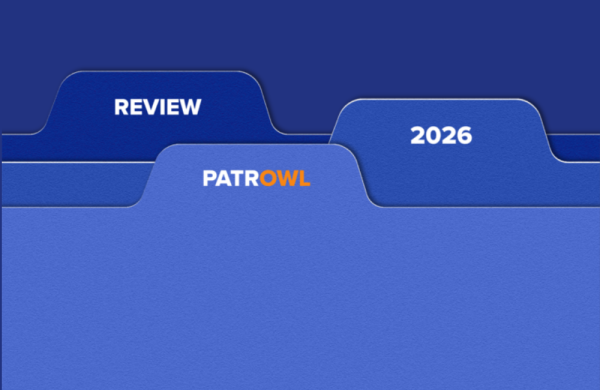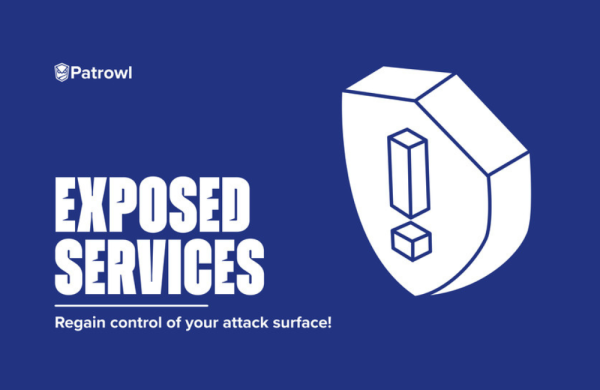Platform
faster than attackers
Easily protect what you expose on the Internet
Patrowl supports you continuously with an all-in-one platform.
More than 100 companies trust us
Why Patrowl?
-
50%
of businesses close down within six months of a cyberattack -
60%
of compromises come from an Internet exposed asset -
+30%
more cyberattacks between 2022 and 2023
720,266
number of assets
protected by Patrowl
An asset is generally an IP address and a domain name or FQDN (Fully Qualified Domain Name).
DON'T WASTE ANY MORE TIME
Focus on your real missions
Simplify vulnerability management and focus on remediation!
Regain visibility
Tired of discovering unreferenced (Shadow-IT) and vulnerable assets too late?
Continuously discover your Internet exposed asset (including your third parties), Shadow IT, counterfeiting and detect changes.
Stay up to date
Exhausted from weekends spent searching for where this or that vulnerable component was?
Be alerted in real time of threats impacting your organization such as referenced (CVE) and unreferenced vulnerabilities, as well as configuration flaws and unknown vulnerabilities (OWASP).
Take back control
Take advantage of our hyper-automation to handle time-consuming actions and allow you to focus on remediation and high value tasks.
Our key features
Simplify cybersecurity: Rediscover your exposed assets, manage risks, track active threats, and continuously pentest for vulnerabilities!
PATROWL MEETS YOUR NEEDS
Test your vulnerabilities
01 — 0 3
Do you know all your Internet exposed assets?
02 — 0 3
What are you looking to protect as a priority?
03 — 0 3
What are your cybersecurity needs?
End of quiz
Thank you for your answers!
To know more about your vulnerabilities, make an appointment.
How does it work?
Managing your vulnerabilities in 4 steps

Rediscovering your internet exposed assets: Shadow IT, counterfeiting, change detection and data leakage
Vulnerabilities identification: Current active threats and automation of penetration testing with vulnerability qualification
Remediation: Easy remediation by a prioritized, pragmatic and detailed action plan with indicators of compromise (IoC). Send it in 1 click-through your ITSM service
Continuous monitoring: Automated monitoring with 1-click retest, automatic checking for new vulnerabilities, and advanced custom controls
Stay up to date with Patrowl
Compliance assured
Patrowl simplifies adherence to regulatory frameworks, enabling you to prove the robustness of your security posture.
DORA Regulation
Digital resilience for the financial sector (banking, insurance).
NIS 2
European directive to secure critical infrastructures (energy, health, transport).
CyberScore
Cybersecurity note for digital services (website and social networks)
CaRE program
Cyber resilience support for SMEs (industry, healthcare).
Our Offers
Stay ahead of attackers. Turn exposure into control.
Advanced EASM
Real-time monitoring of all Internet-facing assets (domains, applications, certificates, emails, credentials).
Instant detection of shadow IT, misconfigurations, and forgotten services.
Risk-based prioritization powered by active threat intelligence (CISA KEV).
Automated, guided remediation to reduce your exposure fast.
Full visibility into everything publicly accessible — no blind spots, no surprises.
Continuous Pentest
Continuous, dynamic mapping of your external attack surface.
Automated and manual pentests validated by certified experts — zero false positives.
Ongoing testing of applications, exposed services, ports, and subdomains.
Vulnerability prioritization based on exploitability and business impact.
Expert remediation reports with clear, actionable fixes for faster response.

FREQUENTLY ASKED QUESTIONS
What is the difference between Patrowl and a vulnerability scanner?
Vulnerability scanners are mainly limited to checking the deployment of patches for known vulnerabilities, referenced CVE:
Patrowl ensures 100% security like a penetration testing but continuously: CVE, configuration error, OWASP, data leaks...
Vulnerability scanners are tools that require a lot of expertise and time to manage, configure and schedule scans:
Patrowl does all of this continuously, automatically.
Vulnerability scanners operate within a limited perimeter, which must be declared:
Patrowl continuously discover everything you expose on the Internet.
Vulnerability scanners generate unqualified reports, full of false positives, hundreds of pages long, unusable, requiring sharp expertise to analyze them:
Patrowl alerts you only on qualified vulnerabilities that present a real risk to your information system and provides solutions to remedy them.
Vulnerability scanners offer generic remediations:
Patrowl offers complete and detailed remediation, suitable for non-experts, with configuration or command examples to allow you to correct as quickly as possible.
How do you ensure zero false positives?
All vulnerabilities reported by Patrowl are automatically pre-qualified by several criteria including:
The technical severity of the vulnerability: CVSSv3
The criticality of the asset
The exposure level of the asset
The origin of the vulnerability
The vulnerabilities are then validated by an offensive operator.
How is discovery done?
You declare technical information (IP addresses and domain names) and/or general information (company name, subsidiary, brand, product name, etc.) and then Patrowl automatically takes care of the rediscovery. Patrowl pivots on different repositories or techniques such as Whois, subdomains, Certificate Transparency, Subject Alternative Name, Wikipedia, RIPE, etc.











